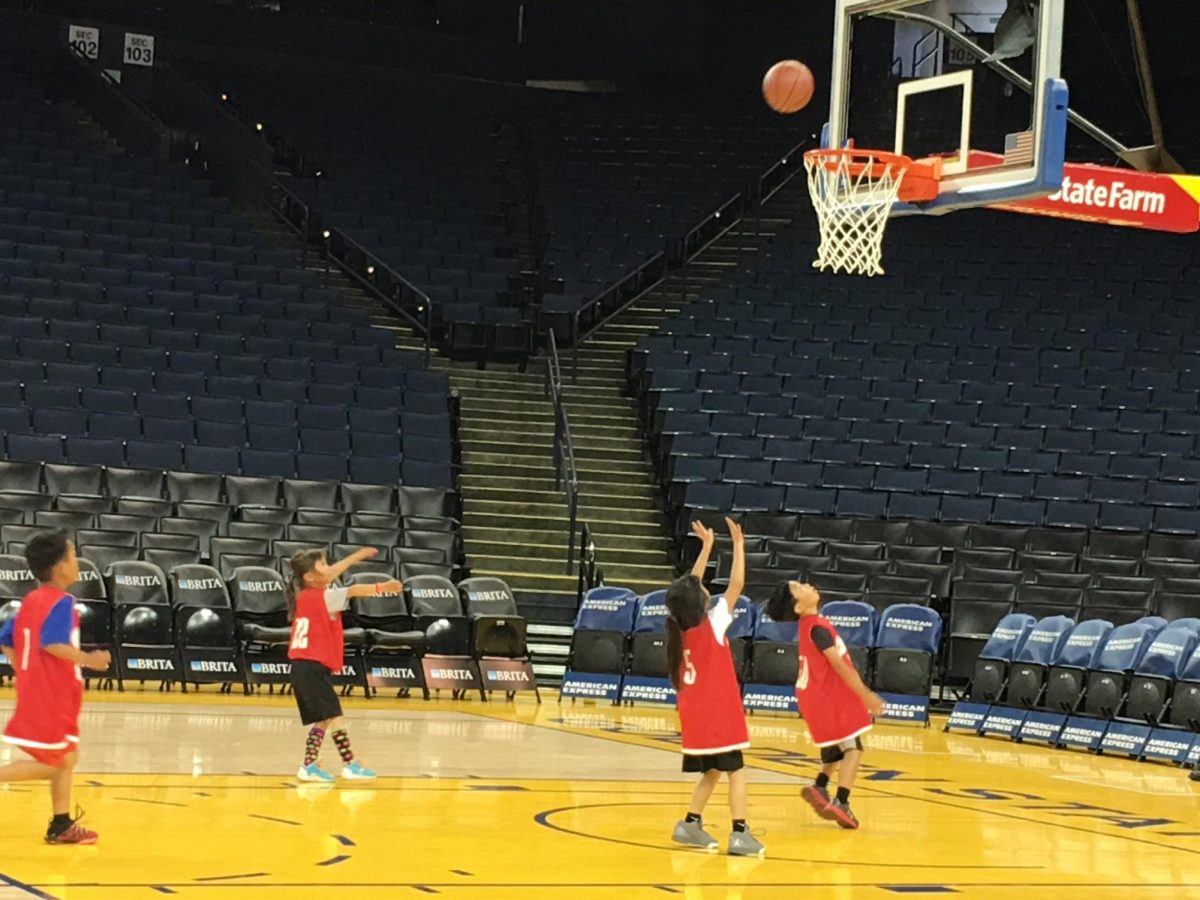After returning from relocation camps during World War II, the Japanese-American community still faced discrimination in their hometowns. In response to this discrimination, one of the ways the Japanese-American community in the Bay Area came together was by creating all-Japanese basketball leagues, according to Varsity Basketball and San Jose Ninjas coach Wade Nakamura.
What began as exclusively Japanese organizations in the early 1940s has now evolved into Asian league basketball teams inclusive of all Asian ethnic backgrounds which remain an essential part of the Asian-American community.
Having played in Asian league teams around the East Bay during his youth, Nakamura says he brings that experience into his coaching and has coached various Asian league teams. Nakamura says that he was motivated to coach in order to give back to the Asian community that he was a part of growing up.
“It’s important for me to give back because I think there’s a void in my generation of people wanting to come back to coach,” Nakamura said. “It’s also becoming more difficult because the club scene has started to take kids away, so teams now are scrambling to find kids who are committed to the Asian league.”
This idea of giving back to the community is a cornerstone of Asian leagues according to Nakamura. Compared to traditional club basketball, the price of playing in an Asian league is significantly lower due to the abundance of volunteers that help maintain the teams.
“It’s definitely more organized and it’s definitely more tight knit,” Nakamura said. “It’s not all money-driven — everyone volunteers their time and none of the coaches get paid. The parents have to put in a lot of time and a lot of work, because they help make the organizations and the teams work seamlessly.”
Coaches are generally also a part of the Asian community according to Nakamura, further strengthening the bond between coaches, players and parents. Sophomore Kaylee Kwok, who joined the San Jose Ninjas this year points out differences she has noticed so far.
“The Asian League is definitely more inclusive,” Kwok said. It’s a bigger community where everybody is really close, and you can talk to anybody, whereas in club it’s kind of difficult to connect with people sometimes.”
Junior Miya Sakurai, who began playing Asian league basketball on a co-ed team in kindergarten until sixth grade after aging out of the club she was in, shares a similar experience to Kwok. She highlights that sportsmanship is highly valued in Asian league.
“In regular club, people tend to play really dirty,” Sakurai said. “Sometimes I feel like people are genuinely there to hurt you. But in Asian league, sportsmanship is something that is really sought after, so you don’t have to be worried about getting hurt, but it’s still competitive. In an Asian league, it’s more of a learning experience for everyone, and you definitely gain a lot more sportsmanship and learn how to be a better teammate.”
Nakamura also points out that Asian league focuses more on discipline and the morals surrounding playing sports. This, he says, makes the experience very different from playing ordinary club sports.
“It’s about building community more than anything else,” Nakamura said. “That’s why when people haven’t experienced Asian league and they come from club, they’re blown away. It’s definitely a different feel culturally, as well as with how people behave.”
The tryout process for joining an Asian league team differs from a traditional club. Instead of being able to attend an open tryout, Asian leagues teams are typically formed through invites and recommendations from coaches, which is why Asian league teams are generally less well-known. Kwok was introduced to the league by her MVHS coaches and was able to secure a spot on the team.
“Joining an Asian league is a rare opportunity,” Kwok said. If you are going to any other team, you are able to try out and put yourself out there, but these teams are invite only.”
At its core, the Asian league is about connecting the Asian community together according to Kwok. While different teams do this in different ways, Kwok says that the San Jose Ninjas, with help from many parent volunteers, often put together socials for teams to interact with each other. Nakamura, who also attends these socials as a coach, says that they can serve as a good bonding moment, and allow families to form more tight-knit bonds that create a sense of unity among members of the league.
“It creates the opportunity to come together and continue to build that community, and that’s super important,” Nakamura said. “We were in Reno two weekends ago, and I saw people that I used to play with 30 years ago have kids playing, and I would probably have never got to see those people or talk to them if it wasn’t for the Asian league. It creates opportunities for people to support other people within the Asian community through sports.”
This story was originally published on El Estoque on October 26, 2024.




































